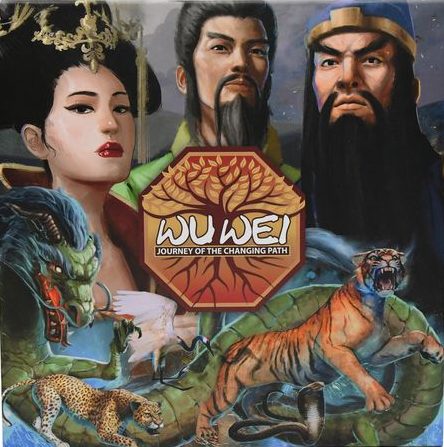Never underestimate the power of an idea. Prior to an idea becoming, it did not exist. There was no part of your self, conscious or otherwise, which registered this thought ever before. An idea can be anything. It can fan interest in a subject or inflame an emotion. An idea can be a tool, forging new advancements and bettering the lives of yourself and others. An idea can be a weapon, wielded by its creator to bring about change to the world around them. An idea can be an abstract, an inspirational goal to work towards, be in body, spirit, or mind. An idea can be all of these things. Or it could be none of them. And once it is there, an idea can never be fully destroyed.
It is these often general and ethereal thoughts that lie at the core nature of philosophy. At its most basic, philosophy is a precept on how one can think about the world, society, and existence as a whole. Philosophy’s entire purpose is to take a very basic question about something – how we think, how we behave, and how the universe interacts with us in some fashion – and then extrapolate from there. Philosophy is more than just some famous thinkers from the past or that weirdly opinionated guy you knew taking it as a college major – it is a method by which we can use both observation and introspection to provide deeper meaning and / or understanding to the world around us. Simply put, it makes you always ask: “why?”
What makes philosophy so frustrating, however, is that its focus is in the pursuit of pursuing, not providing concrete solutions. By its very premise it is very abstract. Beyond the blunt truth that most of us would rather just hear about your new idea, object, or concept rather than the line of thinking that got you there, overtly representing and quantifying ‘philosophy’ itself isn’t that easy to do. Especially in game form.
Yet that’s exactly what we have here with Wu Wei: Journey of the Changing Path, the inaugural title by Justin Waggle of Grey Wolf Games. Wu Wei is a 1-6 player asymmetric abstract game deeply rooted in Taoist philosophy, where players are martial arts masters trying to train new students in order to secure their legacy.
Much of the gameplay revolves around the idea of yin and yang – push and pull – and of trying to acquire chi (energy). Over a number of rounds, a player’s student pawns are limited to movement along a black or white path, while their masters can split movement between them. Movement is further complicated by having two different shaped tile spaces, each of which affects the direction you can move to or from, and several depict seasonal locations which may be temporarily inaccessible over the course of the game.
Beyond that, certain spaces are tied to specific tracks, all of which have the capability of making the journey around the board more or less difficult for you.
Your primary goal in Wu Wei is to have your students reach and study with your master in each of five different marital art forms, then have both the master and newly trained student-master return to the center of the board. Obviously this is easier said than done; skillful maneuvering, a careful concentration on timing, and proper decision-making is paramount to victory.
And that’s just the basic level.
Thanks to an excellent, elaborately crafted table presence and traditionally styled artwork befitting the flavor of the game, Wu Wei is a visually appealing strategy game that incorporates several key elements of Eastern philosophy into its premise while still largely being an abstract. It is a game that focuses more on the oft-forgotten philosophical parts of martial arts training than the fighting itself and about consolidating imperial power without inherently marching troops all over the board. It is a game about the natural push and pull of people to and from one another, and how the changing landscape can affect your intentions. It is a game demonstrating the usefulness of cultivating and utilizing chi at the right time. Wu Wei is a game about all of these things, albeit in an obfuscated and slightly opaque way, but it manages to utilize them all while still being thoughtful, challenging, and entertaining.
Which, it turns out, was a pretty good idea.
We were pulled to the merits of what Wu Wei had to offer, and so in the spirit of the game, we’d like to turn around and push that excitement out to you, in the form of a copy of the game. So we’re doing just that.
From now until the end of the month – the final moments of 2018 – you can check the contest out on our Facebook page, or by entering below. Just follow the entry form and proceed with the contest. The more you do, even if just one, you still have a better chance than not entering at all. Of course you’re welcome to do that too. But your odds of winning drop to zero. No pressure or anything.
The Fine Print: The Cardboard Republic, in conjunction with Gray Wolf Games is giving this game away strictly for entertainment purposes. This act is not a paid endorsement by Gray Wolf Games or any other entity. This contest is open to individuals only. Staff members of The Cardboard Republic and Gray Wolf Games are not eligible to participate. For winners outside of the Continental US, the publisher reserves the right to request they cover part or all of the shipping costs.

